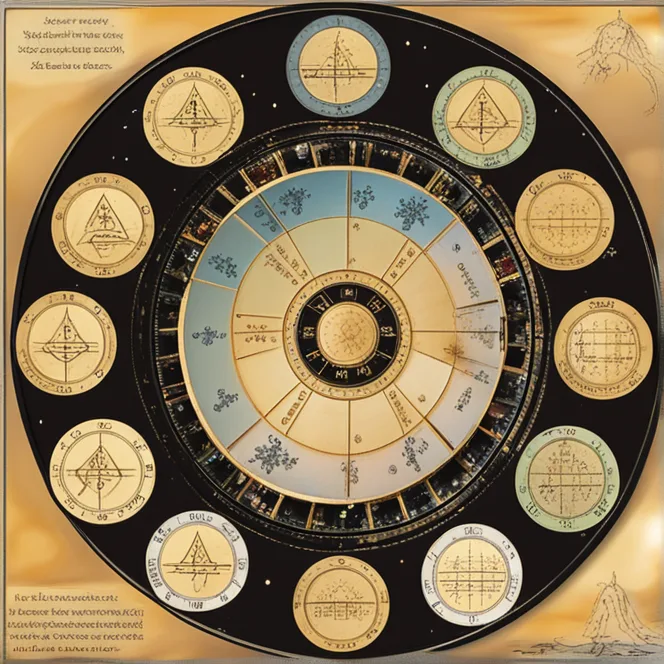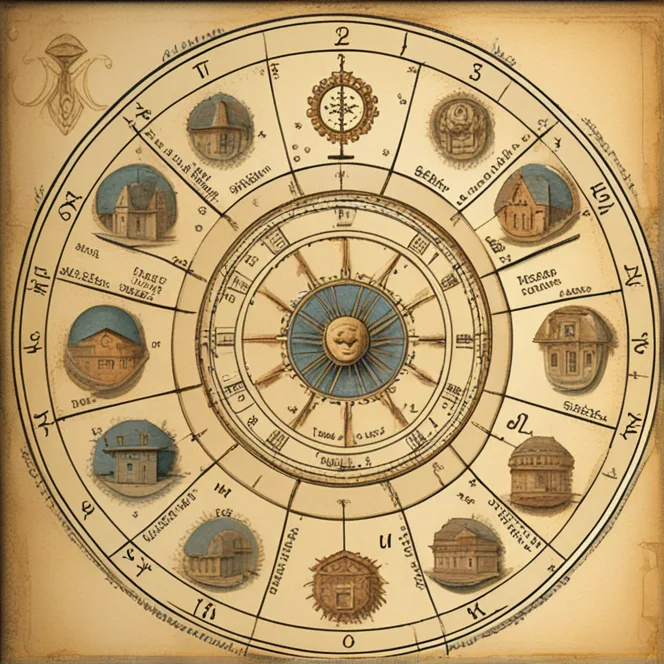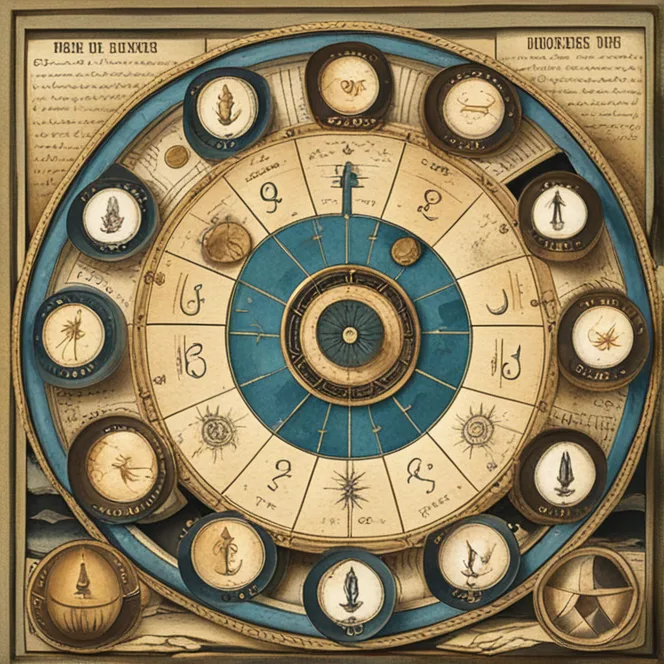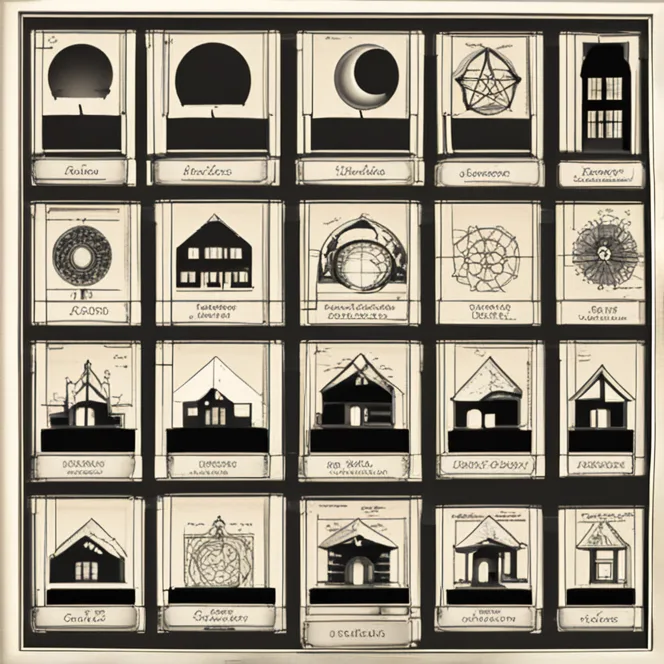
Exploring The Hidden Depths Of Astrological House
Explore the significance of the 12 astrological houses and their impact on your horoscope in this comprehensive guide to the foundations of astrology.
article by Priya Deshmukh
The Basics of Astrological Houses
Astrological houses are divisions of the celestial sphere that serve as the canvas for our birth charts, upon which the positions of the planets and zodiac signs are painted. Each house represents a particular sphere of life, ranging from personal identity to career to spirituality. The houses in astrology are a crucial framework, providing context to the positions and movements of the planets and zodiac signs, and thus shaping our personalities, behavior, and experiences. By interpreting the planets and signs within these house divisions, astrologers can provide insights into an individual's life tendencies and events.

The Zodiac Wheel & Houses
The zodiac wheel is often depicted as a circle divided into twelve segments, each corresponding to one of the astrological houses. These segments are not fixed; they rotate based on the exact time and place of a person's birth - a concept known as the "natal chart." The starting point, known as the Ascendant, marks the cusp of the 1st house and sets the sequence for the remaining houses. The houses can be equal in size (Equal House system) or vary based on the system used, such as Placidus or Koch, which consider the time and location of birth to designate unequal house sizes.

The Significance of Each House
The first house, or Ascendant, reflects self-image, the second house values and possessions, and the third house communication and immediate community. The fourth house is the realm of home and family, while the fifth house governs creativity and romance. The sixth house relates to health and service, and the seventh house partnerships and marriage. The eighth house is associated with transformation and shared resources, and the ninth house with higher learning and travel. The tenth house pertains to career and public image, and the eleventh house friends and aspirations. Lastly, the twelfth house is connected to the subconscious mind and spirituality.

Interpreting the Planets in the Houses
The planets' position in the houses plays a vital role in shaping the experiences associated with each life aspect. For example, Mercury in the third house might indicate a natural communicator, while Mars in the sixth could suggest a dedicated approach to work and health. Each planet has its own set of characteristics, and its placement within the houses can activate or challenge the inherent potentials of those life areas, adding layers of complexity to the astrological interpretation.
The Role of the Four Angles
The four cardinal points—or angles—of the natal chart are particularly influential. These are the Ascendant (1st house cusp), Imum Coeli (IC, 4th house cusp), Descendant (7th house cusp), and Midheaven (MC, 10th house cusp). They correspond to the sunrise, nadir, sunset, and zenith, respectively, and mark important aspects of one's identity, private life, partnerships, and public standing. Planets near these points become highly significant, color our experiences and are described as angular, enhancing their impact in the chart.

Understanding House Systems
Various house systems exist in astrology, each with a different method of dividing the celestial sphere. The choice of house system can influence astrological readings, as it changes the division of the sky and, consequently, the placement of the planets in the houses. Placidus, the most commonly used house system in Western astrology, adjusts houses based on the Earth's tilt and the individual's latitude. However, other systems like the Whole Sign treat each zodiac sign as a house, regardless of the Ascendant, providing a simpler and more historical approach to readings.
Applying House Knowledge
Knowing which house a planet is in can unlock deep personal insights. For instance, Venus in the second house could signify a strong love for material comforts, while Jupiter in the ninth might hint at luck in long-distance travel or academic pursuits. Learning and understanding the house positions in one’s astrological chart can offer guidance on where energies are best focused for growth, where challenges may arise, and where potential can be maximized. Astrological houses serve as a map for navigating life's multifaceted journey.
Published: 12/5/2023
Modified: 12/5/2023
More predictions
Come back here soon to learn more about yourself and your future


Understanding Your Astrological Houses
Delve into the foundations of astrology and learn about the significance of houses in your personal horoscope for deeper insights into your life path.


The Sixth House: Astrological Insights into Daily Work Life
In astrology, the Sixth House is often associated with daily work, health, and routines, offering profound insights into our professional lives and work habits. This house, traditionally linked to Virgo and ruled by Mercury, reveals how we approach our daily responsibilities and adapt to the work environment. Understanding the Sixth House's influence can provide valuable guidance for achieving balance and satisfaction in our work life.


The Zodiac Saga: The Twelve Mystical Houses
In the vast expanse of the cosmos, each star and planet tells a tale, weaving the fabric of a grand celestial story. Among these cosmic narratives, the twelve astrological houses hold a special place, each representing unique aspects of life and existence. In this enchanting tale, we embark on a journey through these mystical houses, exploring the distinct qualities and adventures that each one embodies.